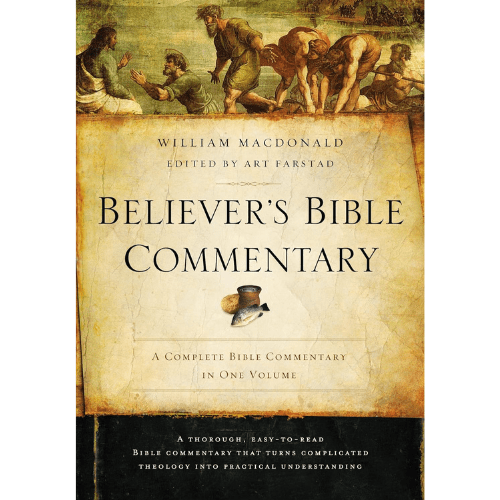Why do the righteous suffer while the wicked seem to prosper? This question has troubled believers for centuries, and the Book of Job offers profound insight. Job, a faithful servant of God, faces unimaginable loss—his wealth, health, and family are taken from him. Yet, despite his suffering, he wrestles with faith, justice, and the mystery of God’s plan.
At first, Job’s friends insist that suffering is always a result of sin. But Job knows he has done nothing wrong. As he pleads for answers, God eventually responds—not with explanations, but with a powerful reminder of His sovereignty. Through Job’s journey, we learn that faith is not about understanding every trial but trusting God through them.
The Book of Job challenges us to shift our perspective. Rather than seeing suffering as punishment, we recognize it as an opportunity to grow in faith. When we walk through life’s darkest moments, Job’s story reminds us that God remains in control. Will we trust Him even when we don’t understand?
Writer of the Book of Job
The author of the Book of Job remains unknown, yet its wisdom and depth suggest a writer well-versed in theology and human suffering. Some scholars believe Moses may have written it, while others propose an ancient sage from the wisdom tradition. Because the book contains poetic language, vivid imagery, and philosophical arguments, it is clear the writer had a deep understanding of God and human struggles.
Although we do not know the author’s identity, we can see that the Book of Job carries divine inspiration. The story’s setting, customs, and lifestyle resemble the patriarchal era, suggesting an early origin. However, the theological themes align with later wisdom literature, making the dating uncertain. Regardless of who wrote it, the book’s message remains timeless. It challenges us to trust God even when we do not understand His ways. More importantly, it reminds us that faith goes beyond human reasoning, calling us to rely on God’s sovereignty.
Date Written
The exact date of the Book of Job remains uncertain. Some scholars believe it was written during the time of the patriarchs (2000–1500 BC). Job’s wealth, measured in livestock, and his role as family priest suggest an early period before the Mosaic Law. Others argue that the book was composed later, possibly during the Babylonian exile (6th century BC). During that time, Israel struggled with suffering and questioned God’s justice, much like Job did.
Although we may not know when it was written, the Book of Job remains timeless. Its themes of faith, suffering, and God’s sovereignty are relevant in every generation. Whether it originated in the patriarchal age or was recorded later, its message continues to challenge and encourage us. No matter the time period, Job’s story teaches us to trust God, even when life feels uncertain.
To Whom Written
The Book of Job was written for everyone seeking to understand suffering, faith, and God’s justice. Although its primary audience may have been ancient Israel, its message applies to all believers. Throughout history, people facing trials have turned to Job’s story for wisdom and encouragement.
Job’s struggles reflect questions we all ask—why do the righteous suffer? Where is God in our pain? His story reminds us that God’s ways are higher than ours. Whether we live in ancient times or today, the Book of Job speaks to our hearts.
It challenges those who assume suffering is always punishment. It also encourages those enduring hardship to trust God, even without clear answers. Regardless of our circumstances, Job’s journey helps us develop perseverance and a deeper faith. His story teaches us that God remains sovereign, even when life seems unfair.
Purpose of the Book of Job
The Book of Job helps us understand suffering, faith, and God’s justice. It explores why the righteous suffer and challenges the idea that hardship is always a result of sin. Job’s story reminds us that trials do not mean God has abandoned us. Instead, they can deepen our faith and trust in His plan.
This book also reveals God’s wisdom and sovereignty. Job and his friends try to explain suffering with human reasoning, but God’s response shows that His ways are beyond our understanding. Sometimes, we may never know why we suffer, but we can trust that God is in control.
Additionally, the Book of Job encourages us to remain faithful, even when life feels unfair. Job never receives a direct answer for his suffering, yet he chooses to trust God. His journey teaches us that faith is not about having all the answers—it’s about believing that God’s wisdom is greater than ours.
Historical Context of the Book of Job
The Book of Job takes place in an ancient setting, likely before the time of Moses. Job acts as the family priest, offering sacrifices on behalf of his children (Job 1:5). This suggests a period before the Mosaic Law, when fathers performed religious duties for their households.
Job lived in the land of Uz, which was located east of Israel. Many scholars believe this region was in Edom or northern Arabia. His immense wealth, measured in livestock rather than silver or gold, reflects customs from the patriarchal era. Additionally, Job’s long lifespan aligns with the extended ages of biblical patriarchs.
Although Job likely lived long before Israel’s history, the Book of Job addresses themes that later generations wrestled with. During times of suffering, Jewish readers would have seen Job’s story as a source of wisdom and encouragement. No matter the time period, Job’s experiences remind us that faith in God remains essential, even in the face of great suffering.
Key Themes in the Book of Job
The Book of Job explores deep and timeless themes that challenge our understanding of suffering, faith, and God’s sovereignty. Through Job’s story, we learn to trust God, even when life feels unfair.
The Sovereignty of God
Job’s suffering is not random; it is part of a greater divine plan. Even though he does not understand why he suffers, God remains in control. This theme reminds us that His wisdom surpasses ours, and we must trust Him, even when life feels overwhelming.
Human Suffering and Divine Justice
Job’s friends believe that suffering is always a result of sin, but God refutes this idea. The Book of Job teaches us that pain is not necessarily punishment. Sometimes, suffering serves a greater purpose—refining our faith and drawing us closer to God.
Faith and Endurance
Job loses everything—his wealth, health, and family—yet he refuses to curse God. His perseverance encourages us to remain faithful, even when we face trials. Hardships test our faith, but they also strengthen our dependence on God.
The Limits of Human Understanding
Job demands answers from God, but when God speaks, He reminds Job of his limited perspective. This theme teaches us that we cannot always grasp God’s plans. However, we can trust that His wisdom is perfect and His ways are just.
Restoration and Redemption
Although Job endures great suffering, God restores his fortunes and blesses him more than before. This highlights God’s justice, mercy, and ability to bring renewal after hardship.
Through these themes, the Book of Job challenges us to trust God, even in life’s darkest moments. Job’s journey teaches us that faith is not about having all the answers—it’s about believing in the One who does.
Believer’s Bible Commentary
Make Bible study a part of your daily life with the thorough yet easy-to-read commentary that turns complicated theology into practical understanding.
Major Events/Stories in the Book of Job
The Book of Job takes us on an emotional journey filled with trials, deep conversations, and divine revelation. Through Job’s story, we learn about suffering, faith, and God’s ultimate justice.
Job’s Prosperity and Righteousness (Job 1:1-5)
Job is introduced as a man of great wealth and deep faith. He is described as blameless, upright, and devoted to God. Job regularly offers sacrifices for his children, showing his commitment to righteousness. At this point, he enjoys a life of prosperity, surrounded by family, livestock, and success.
Satan’s Challenge and Job’s Suffering (Job 1:6-2:10)
Satan appears before God and claims that Job is faithful only because of his blessings. To test Job’s faith, God allows Satan to take away his wealth, children, and health. Despite losing everything, Job refuses to curse God. His suffering is immense, but his faith remains strong.
Job’s Lament (Job 3)
After enduring unimaginable loss, Job expresses deep sorrow. He curses the day he was born, wishing he had never lived. This moment of raw emotion reminds us that even the most faithful believers struggle with pain and despair.
Dialogue with Friends (Job 4-31)
Three of Job’s friends—Eliphaz, Bildad, and Zophar—come to comfort him, but their words bring little relief. They insist that Job must have sinned, arguing that suffering is always a punishment from God. Job, however, maintains his innocence. He refuses to accept their reasoning and continues to plead his case before God.
Elihu’s Speech (Job 32-37)
A younger man, Elihu, speaks up after listening to Job and his friends. He rebukes them all, arguing that suffering can serve a greater purpose. He emphasizes that God is just and that His ways are beyond human understanding.
God’s Response (Job 38-41)
Finally, God speaks from a whirlwind, challenging Job’s understanding of the universe. He asks Job a series of questions, revealing Job’s limited knowledge compared to His divine wisdom. Rather than answering Job’s questions directly, God reminds him of His power and sovereignty.
Job’s Repentance and Restoration (Job 42)
Humbled by God’s response, Job acknowledges that he cannot fully understand God’s ways. He repents, and God restores his fortunes, blessing him with even greater wealth, family, and long life. This final chapter highlights God’s justice, mercy, and ability to bring restoration after suffering.
Through these events, the Book of Job teaches us to trust God, even when we do not understand His plans. Job’s journey reminds us that faith is not about having all the answers—it’s about trusting the One who does.
Theological Contributions
The Book of Job offers profound theological insights that shape our understanding of suffering, faith, and God’s sovereignty. Through Job’s journey, we gain wisdom about God’s justice, human endurance, and the unseen spiritual realm.
God’s Sovereignty Over Suffering
Job’s story challenges the idea that suffering is always a result of sin. His friends insist he must have done something wrong, but God disproves their reasoning. The Book of Job teaches us that God allows trials for reasons beyond our understanding. Though we may not see the full picture, He remains in control.
Faith Amidst Trials
Despite losing everything, Job refuses to curse God. His unwavering faith teaches us that trust in God is not dependent on circumstances. Even in suffering, we can remain faithful, knowing that God’s purpose is greater than our pain.
God’s Wisdom Transcends Human Understanding
When Job demands answers, God responds by highlighting the vastness of His wisdom. The Book of Job reminds us that we cannot always understand divine plans. Instead of demanding explanations, we are called to trust God’s infinite knowledge.
The Role of Satan
Few biblical books provide such a direct look at Satan’s influence. In Job’s story, Satan tests a believer’s faith, showing that spiritual battles occur beyond what we see. The Book of Job reveals that while Satan may cause suffering, he operates under God’s authority.
Through these theological insights, Job’s story challenges us to trust in God’s sovereignty, even when life feels uncertain. His experiences remind us that faith is about trust, not explanations.
Special Considerations in the Book of Job
The Book of Job is unique in its style, structure, and message. Unlike many biblical narratives, it is primarily poetic, filled with deep, philosophical dialogues. Because of this, we must approach it with careful reflection rather than expecting straightforward answers.
One key consideration is that Job’s suffering is not proof of God’s cruelty. Some may read his story and question God’s goodness. However, the conclusion reveals God’s justice and mercy. Job’s trials are not a sign of divine punishment but rather a test of faith.
Additionally, the Book of Job does not fully explain why suffering happens. Instead, it challenges us to trust God even when we do not understand His ways. Job’s story reminds us that faith is not about circumstances—it is about trusting God’s character. When life feels unfair, we can find comfort in knowing He remains sovereign and just.
Final Thoughts on the Book of Job
The Book of Job is a powerful reminder that faith is not based on life’s circumstances but on trust in God’s character. Job’s journey through unimaginable suffering shows us that hardship is not always a punishment but often a test of faith. His perseverance encourages us to endure trials without losing hope.
Although Job sought answers, God’s response revealed that His wisdom is beyond human understanding. We may not always know why we suffer, but we can trust that God’s purposes are greater than our own. Through Job’s story, we see that even when life feels chaotic, God remains sovereign and just.
In the end, Job’s faith led to divine restoration and renewed blessings. The Book of Job teaches us that trusting God through hardship leads to spiritual growth and ultimate redemption. When trials come, may we respond like Job—choosing faith even when we don’t have all the answers. His story reminds us that God’s justice, mercy, and wisdom never fail.
Frequently Asked Questions (FAQ) about the Book of Job
1. Why did God allow Job to suffer? God allowed Job to suffer as a test of his faith, proving that righteousness is not based on blessings alone. Job’s trials also demonstrate that suffering is not always a punishment for sin but can serve a greater purpose in God’s divine plan.
2. What is the main lesson of the Book of Job? The Book of Job teaches us that God’s wisdom surpasses human understanding. It reminds us to trust Him even when life feels unfair. Job’s story also challenges the idea that suffering is always a result of sin and highlights God’s sovereignty.
3. How does the Book of Job describe God’s justice? The book challenges traditional views of justice by showing that suffering is not always tied to wrongdoing. Instead, God’s justice is revealed in His wisdom and ultimate restoration. Job’s story assures us that God is just, even when we do not understand His ways.
4. What role does Satan play in the Book of Job? Satan appears before God and argues that Job is only faithful because of his blessings. God allows Satan to test Job, demonstrating that true faith is not based on circumstances but on a deep trust in God.
5. How does Job’s story end? After Job acknowledges God’s wisdom and sovereignty, God restores his fortunes. He blesses Job with twice as much as before, reaffirming that God is both just and merciful.





